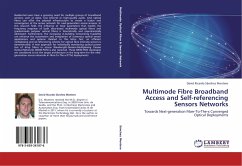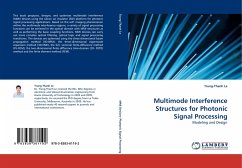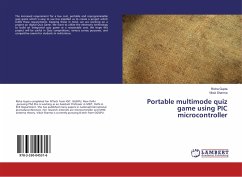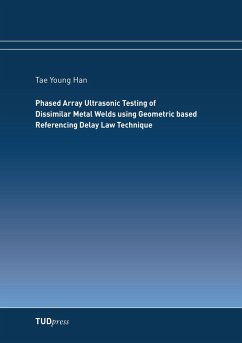
Multimode Fibre Broadband Access and Self-referencing Sensors Networks
Towards Next-generation Fiber-To-The-x Converged Optical Deployments
Versandkostenfrei!
Versandfertig in 6-10 Tagen
45,99 €
inkl. MwSt.

PAYBACK Punkte
23 °P sammeln!
Residential users have a growing need for multiple groups of broadband services, such as video, fast internet or high-quality audio. And optical fibres can offer the physical infrastructure to create a fusion and convergence of the access network for next-generation access services. In this research field, the influence of most parameters that modify the frequency response of both silica-based multimode optical fibres and graded-inedx polymer optical fibres is theoretically and experimentally addressed. Furthermore, the increasing in-building networking feasibility can enhance the automation a...
Residential users have a growing need for multiple groups of broadband services, such as video, fast internet or high-quality audio. And optical fibres can offer the physical infrastructure to create a fusion and convergence of the access network for next-generation access services. In this research field, the influence of most parameters that modify the frequency response of both silica-based multimode optical fibres and graded-inedx polymer optical fibres is theoretically and experimentally addressed. Furthermore, the increasing in-building networking feasibility can enhance the automation and integration of numerous optical sensor applications and systems. Related to this latter fact, an efficient multiplexing and sel-referencing scheme for optical fibre intensity sensors is demonstrated. A new approach for individually monitoring optical power loss of drop fibres in access Wavelength-Division-Multiplexing Passive Optical Networks (WDM-PON) is also reported. These WDM-PON topologies are considered to be the target architecture in the long-term for the next-generation access networks in Fibre-To-The-x (FTTx) deployments.












